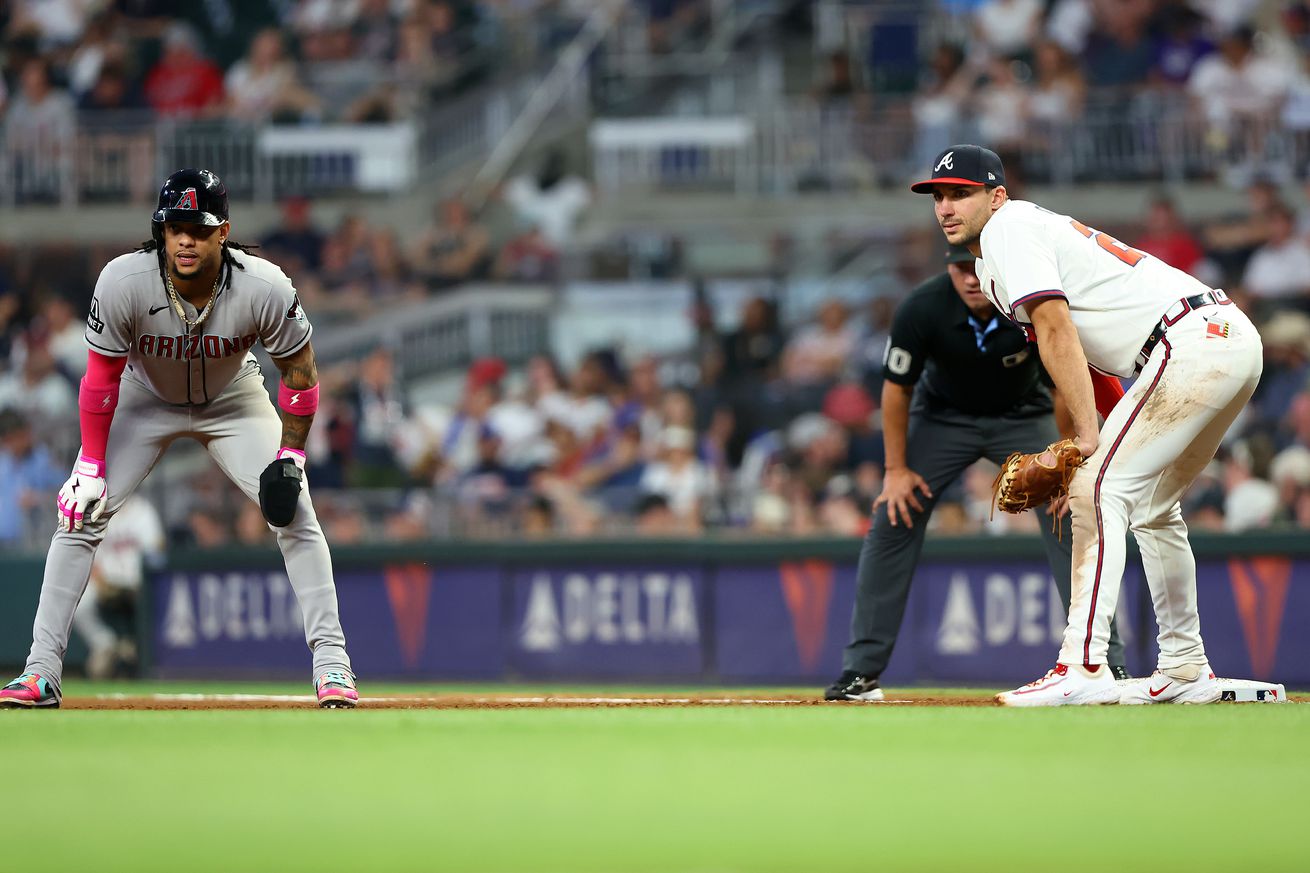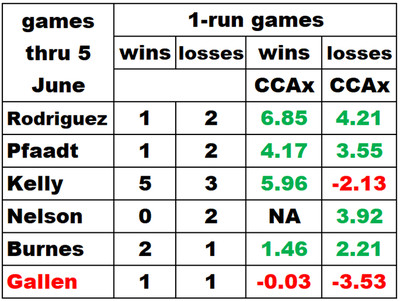
Inspiration.
It rarely happened. A few times there was an umpire for my tournament pickleball game. One umpire had a delightful sense of humor, which improved my game experience. It was an intangible benefit that likely improved that quality of play by both teams. Does that occur in baseball?
On 3 June, Marte was caught off first base, but the umpire called safe. The other team challenged the call. New York called him out. The game thread had some grumbling. I felt the grumbling was justified, so I went back and replayed two views of the play on my streaming service and stopped one view at the exact moment when Marte was tagged. The image showed that when his arm was tagged, his gloved hand was about an inch from the base. Although I was less than happy, there was satisfaction that the call was correct.
Then, I wondered about this season; how have the umpires impacted the Diamondbacks? First, I tip my hat to Jim McLennan who has frequently shared umpire scorecards that are posted on X (formerly Twitter).
Let’s quickly look at objective data from umpscorecards.com. Although a longer look could reveal more insights, that will wait for another day.
What does the data say?
Run Expectancy Impact Compared on the Team Level: In the first 62 games of the season, the Diamondbacks’ 12.18 total favorable run expectancy impact was the best in the Majors. Calls especially favored the Diamondbacks’ batters (ranking fourth best), while Diamondbacks’ pitchers were above average.
Pitches Called Correctly Compared on the Game Level for 1-run Games: Games most likely impacted were games decided by 1-run. Did the umpires impact 1-run games? My focus was on the number of pitches correctly called by the umpire. What made that useful was the umpscorecards website provided the expected number of pitches called correctly. Comparison would show how much each game’s correct calls differed from expected.
- Step one: For the Diamondbacks, their 1-run games did not differ very much from their other games (1.29 vs 0.93 more correct calls per game than expected). And who can complain about more correct calls than expected?
- Step two: For the Diamondbacks, when they won 1-run games they had relatively more correct calls than when they lost 1-run games (1.84 vs .75 more correct calls per game than expected). My view is that when the umpires were on their game, it helped the Diamondbacks win close games!
Pitches Called Correctly Compared on the Game Level for 1-run Games – Split for Each Starting Pitcher: With the exception of Zac Gallen, the Diamondbacks starting pitchers experienced games with better than expected call accuracy. See the following table for details (positive CCAx means the games had more correct calls than expected):

Data from UmpScoreCards.com and Baseball Reference.
The table showed that by far Merrill Kelly was the starter for more 1-run games than any other Diamondbacks pitcher. And it feels great that he won 5 of those 8 starts. The call accuracy was significantly less in his losses than his wins (negative 2.13 vs positive 5.96).
Summary.
In the first 62 games of the season:
- The Diamondbacks’ total favorable run expectancy impact was the best in the Majors. Calls favored the Diamondbacks, especially their batters (ranking fourth best in the Majors); Diamondbacks pitchers calls were above average.
- When the Diamondbacks won 1-run games they had relatively more correct pitch calls than when they lost 1-run games. My view is that when the umpires were on their game, it helped the Diamondbacks win close games!
- Focusing on games decided by one run, the Diamondbacks starting pitchers experienced games with better than expected call accuracy, with the exception of Zac Gallen.